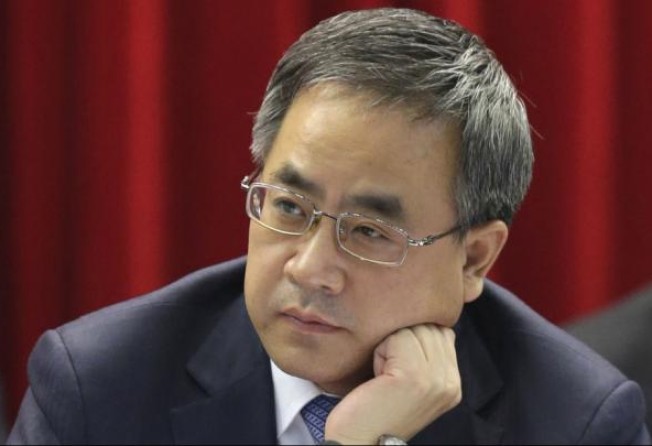Guangdong party boss Hu Chunhua keeps his cards close to his chest
Hu Chunhua's low profile, opaque style sets him in stark contrast to his reformist predecessor, Wang Yang

At first glance, Guangdong's new party chief, Hu Chunhua, appears to be the complete opposite of his reformist, media-savvy predecessor, Wang Yang.
On the sidelines of the annual session of the National People's Congress in Beijing last week, Hu answered just one question from more than 200 journalists representing some 140 media organisations at an open session for Guangdong delegates.
In response to a soft question from a reporter representing Xinhua, the state-run news agency, Hu said he was "feeling very good", citing the province's prominent economic position on the mainland and its good climate.
Hu, 49, also said he was confident about Guangdong's future development despite the challenges of transforming its economic structure and spurring economic growth outside the prosperous Pearl River Delta.
Many members of the press with burning questions about events such as the recent censorship saga at the Southern Weekly were ignored.
Hu's performance contrasted sharply with how Wang approached the media at previous NPC sessions. Wang never failed to impress the press, foreign and local, with his witty, candid and humorous remarks.
At last year's NPC meeting, Wang fielded a few questions from journalists about the land dispute in Wukan and his prospects for promotion, two of the hottest issues of the day.
Three months after he became Guangdong's Communist Party secretary, it's still hard to know what to make of Hu.
His low-profile, opaque political agenda and seeming reluctance to outline his own policy ideas combined to make the rising political star almost invisible at the NPC meeting, China's most important annual political event. His discreetness could be a strategy to hide his capabilities and bide his time - a self-preservation instinct that could help him grow wings before they are clipped prematurely.
If Hu does well in Guangdong, he is expected to be rewarded with membership of the Communist Party's supreme decision-making body, the Politburo Standing Committee, in just under five years.
It is believed by many China watchers that the reason that Wang was unable to get into the Politburo Standing Committee in November was that his high-profile, reformist image was not well received by party elders.
It is obvious the past year hasn't been easy for Hu, as he transitioned from party chief in Inner Mongolia to the man in charge of the mainland's economic powerhouse. His hair was dark grey when he was photographed as Inner Mongolia party chief in Beijing a year ago, at the previous NPC meeting. Now it could best be described as salt and pepper, with plenty of white mixed in with the grey.
Hu needs to focus on improving the development of civil society and reducing social inequality, in addition to upgrading Guangdong's economic base, according to analysts.
A future leader needs to be more than media savvy. Most importantly, he has to make improving people's livelihoods a priority, including alleviating social injustice and strengthening the participation of NGOs in doing so.
It might be too early to judge Hu after less than three months in office.
Let's hope he can get on with the task soon and begin to deliver on concrete policies that focus on more than just GDP rankings.